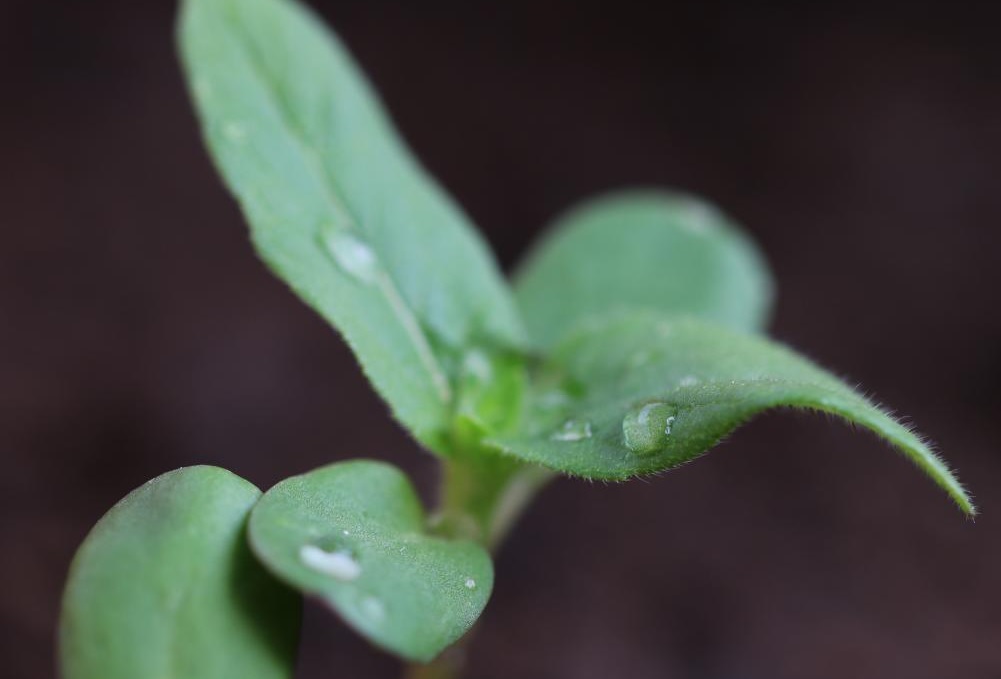In the age of the Anthropocene, humans as the dominant species are driving significant and even irreversible environmental changes, thereby shaping the future of all living beings and our only planetary home. The complicated relationship between humans and ecosystems has often been mediated by economics and technology. Prevailing theologies and spiritualities have also molded these interactions. 
Photo: Ivars Kupcis/WCC Reflections on ecology as science and on ecological crisis as experience, recently amplified by the COVID-19 pandemic, arrive at the conclusion that “everything is interconnected”. This statement from Pope Francis’ 2015 encyclical, Laudato si’, is a good way of relating to the fundamental fact of relationships of interdependence between everything that exists on earth. Likewise, the World Council of Churches (WCC) in Together towards Life states that “it is vital…to affirm all life, the whole oikoumene, as being interconnected in God’s web of life”. The 2020 theme of the WCC Pilgrimage of Justice and Peace of “Caring for People, Water, and Earth” is characterized by these relationships of interconnections. Being in relationship has numerous theological resonances such as Trinitarian theology, theology of covenant, biblical notions of socio-economic and ecological justice, among others. In other words, Christian life is entirely about relationships with interconnected aspects of life. Against this background, the subject conference jointly convened by the Ecumenical and Francophone Seminar on the Theology of Ecology (SOFTE) and the WCC aims to address questions such as: How are ecological relationships shaping Christian theological thinking and vice versa in current times? How can Christian theology and spirituality embrace ecological relationships? And as human ascendancy over nature poses threats to the future of our planet, what are the implications for Christian theological reflection and action? The conference will consider these issues under four modalities: 1 - the meaning of ecological relationship in theology
2 - the biblical covenant revisited by ecotheology
3 - the question of beatitude with the theme of humility and the meek inheriting the earth
4 - the new model of economic relationships through the gospel of Jesus Christ chasing the merchants from the temple of Jerusalem Click to access the full program Virtual conference exclusively - Free participation
Click to register
Proceedings in French and English will be published afterward.Speakers Louk ANDRIANOS, WCC/COE, Crete, Greece
Isabel APAWO PHIRI, WCC/COE, Geneva, Switzerland
Caroline BAUER, SOFTE /Institut Théologique d’Auvergne, Clermont-Ferrand, France
Dominique COATANEA, SOFTE/Centre Sèvres, Paris, France
François EUVÉ sj, SOFTE/Centre Sèvres, Paris, France
Philippe GAGNON, SOFTE/ANR Métagénopolis, Saclay, France
Henrik GRAPE, WCC/COE, Uppsala, Sweden
Jione HAVEA, WCC/COE/Free Wesleyan Church of Tonga, Tonga, Pacific
Guillermo KERBER, SOFTE / ECR, Geneva, Switzerland
Martin KOPP, SOFTE/UNISTRA, Strasbourg, France
Loïc LAINÉ, SOFTE / UCO, Nantes, France
Frédéric LOUZEAU, SOFTE/Collège des Bernardins, Paris, France
Ama Aimée MANZAN, SOFTE/UCLy, Lyon, France
Victor MORALES, SOFTE /Tübingen, Germany
Marcel NGIRINSHUTI, SOFTE/UPAC Yaoundé, Cameroun
Andrés PACHECO-LOZANO, WCC/COE/Amsterdam Center for Religion, Peace and Justice Studies, Amsterdam, The Netherlands
Yolanda PANTOU, WCC/COE/Gereja Kristen Indonesia (GKI), Jawa Barat, Indonesia.
Athena PERALTA, WCC /COE, Geneva, Switzerland
Michel RAQUET, SOFTE/UCLy, Lyon, France
Fabien REVOL, CJB/UCLy, Lyon, France
Otto SCHAEFER, SOFTE/UNISTRA, Strasbourg
Dinesh SUNA, WCC/COE, Geneva, Switzerland
Jin Yang KIM, WCC/COE, Geneva, Switzerland Source►WCC |